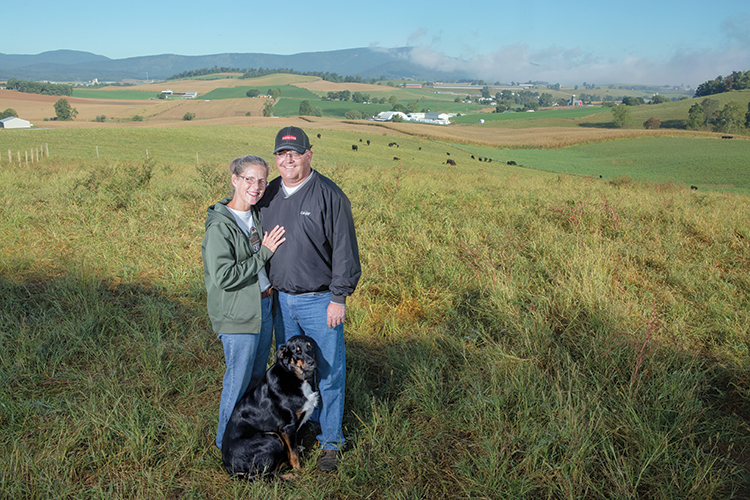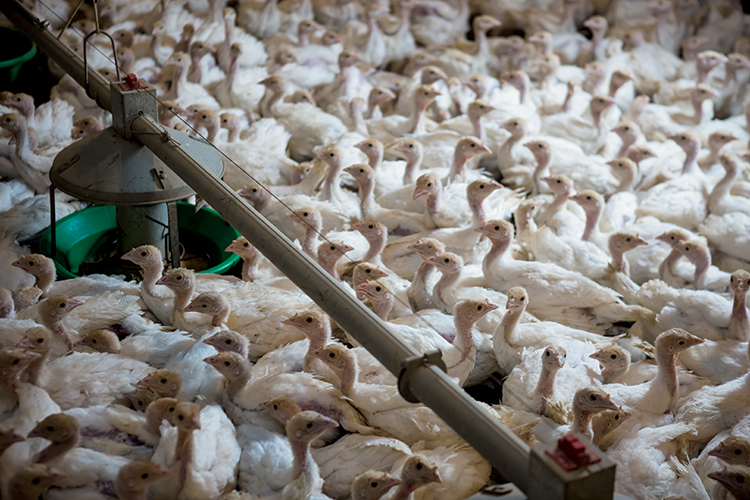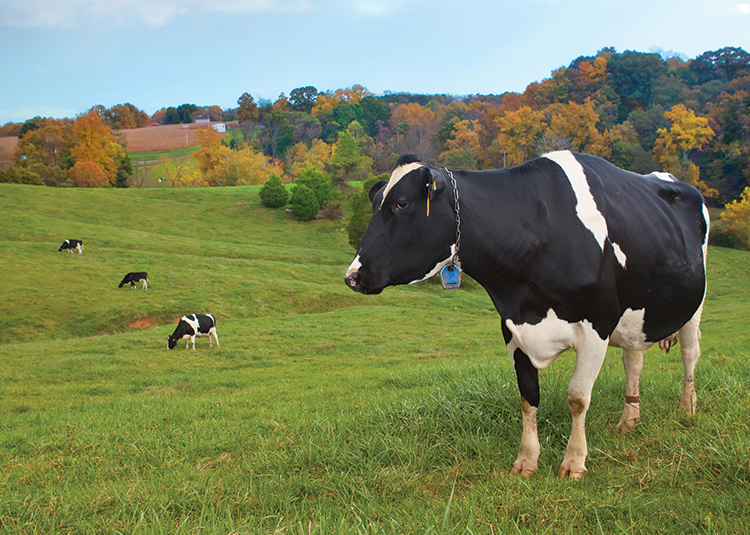Home > Virginia > Virginia Crops & Livestock > Virginia Farmers Care for Their Animals
Virginia Farmers Care for Their Animals
In partnership with: Virginia Department of Agriculture and Consumer Services

Every morning, Craig Miller and his wife, Nancy, check on the turkeys living in the three barns at their Harrisonburg operation, which is fittingly named Miller Farm.
“We go through the turkey houses four times a day – and more when the turkeys are younger,” Craig Miller says.
But the animal care Virginia farmers give goes far beyond daily observation.
“We do things every day to make sure these animals are comfortable and healthy. Yes, our livelihood comes from producing healthy animals, but it’s hard to describe in words how we feel about them,” Miller says. “We give them the best care possible.”
Virginia’s poultry and cattle farmers are wholly focused on animal care. “Farm families take their ethical obligation to provide the best quality care to their animals very seriously,” says Kay Johnson Smith, president and CEO of the Animal Agriculture Alliance in Arlington. “No farmer wants to see animals under their care suffer, and farmers are committed to continuous improvement of production practices to protect against threats to animal health.”
 Tranquil Turkeys
Tranquil Turkeys
The Millers go to great lengths to protect the 200,000-plus turkeys in their care each year. Some poultry diseases, carried by wild birds and waterfowl, can cripple a domesticated flock.
“We change into plastic boots and coveralls every time we go into the turkey house to lessen any risk of spreading disease. You do everything you can to lower that risk,” Miller says.
The turkey barns provide a physical barrier against wild birds and rodents, offering an ideal environment for turkeys to flourish.
“All the ventilation systems are computer controlled. It’s cooler in the summer and warmer in the winter inside the house,” Miller says. “We flush the water lines each day, keeping the water as fresh as possible, and that water is drained outside. A wet environment is not good for turkey health.”
Each turkey house is totally cleaned for each new group of birds. “It’s a very neat, very clean environment,” Miller adds. “It has to be that way. We have to provide the best environment for the birds to grow.”
 Cow Comfort
Cow Comfort
Erin Henley started taking care of Holstein calves on her family’s operation, Alvis Farms in Goochland County, when she was just 13 years old. After graduating with a dairy science degree from Virginia Tech in 2012, she returned to work as a herdsman. “We work really hard to keep the cows as happy and comfortable as possible,” she says.
That includes vaccinating against major cattle diseases, such as brucellosis, an infection that can be spread to humans through unpasteurized dairy products. Farmers have played a major role in eradicating or controlling crippling animal disease like brucellosis in cattle in the U.S. “Our calves are on a set vaccination schedule from birth,” Henley says.
The farm’s more than 800 Holstein cows, plus more calves and heifers, need a lot of space. “I walk through all the barns daily, and we check pasture fences weekly,” Henley says. “Heifers and cows roam freely when they’re on the pasture. We have barns where they can go for shade and food.”
Cows that get milked receive extra special treatment. “We put rubber waterbeds covered with sand in their stalls,” Henley says. “The waterbeds adjust with their bodies, just like a person’s waterbed, and the sand gives a layer of comfort.”
Henley also trains farm employees each month, providing reminders about how to act around cows: walking slowly, using a calm voice and avoiding anything that might startle them. “We treat these cows as well as we can,” she says, “because we want to deliver our consumers dairy products produced the best way possible.”



